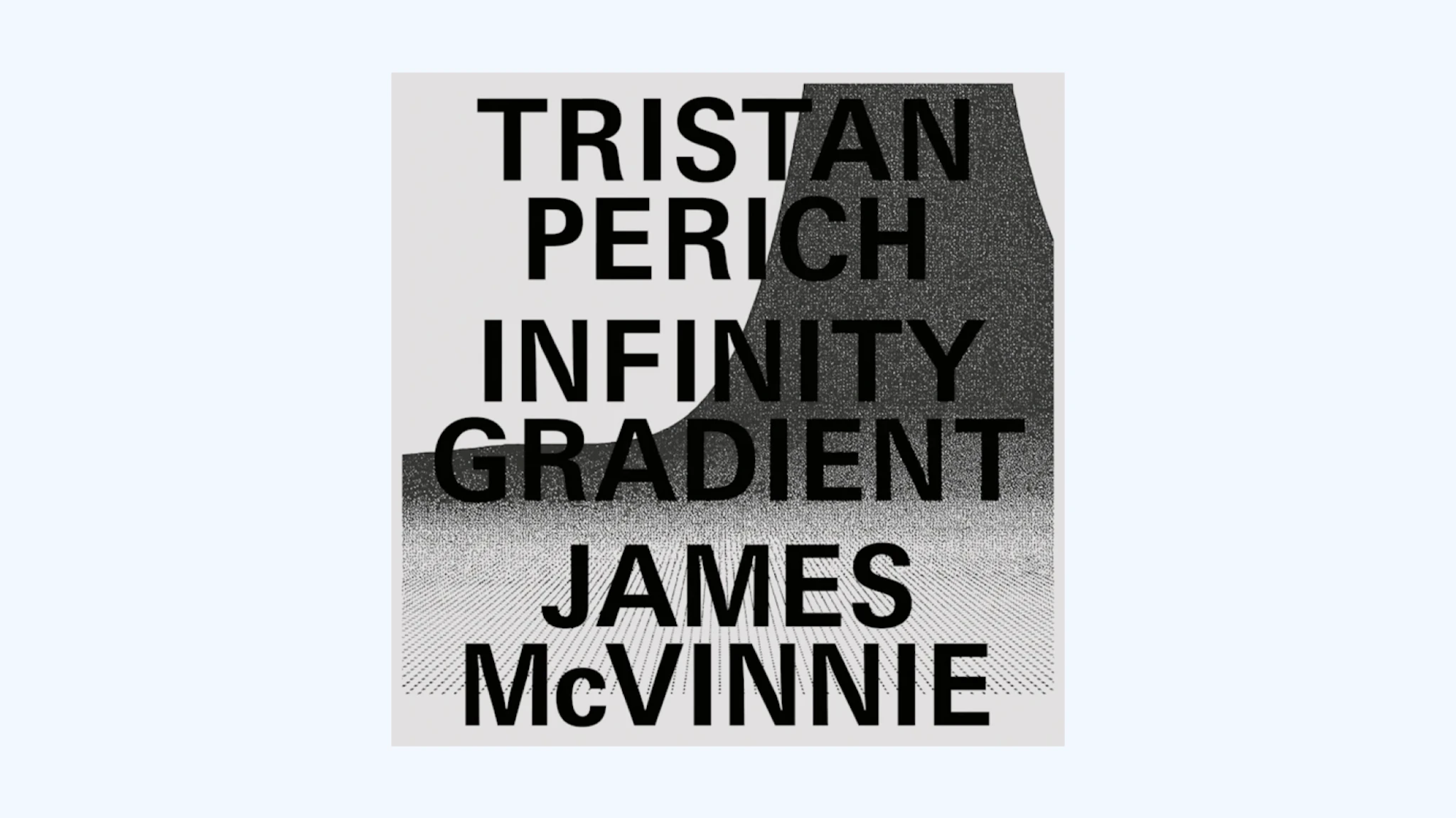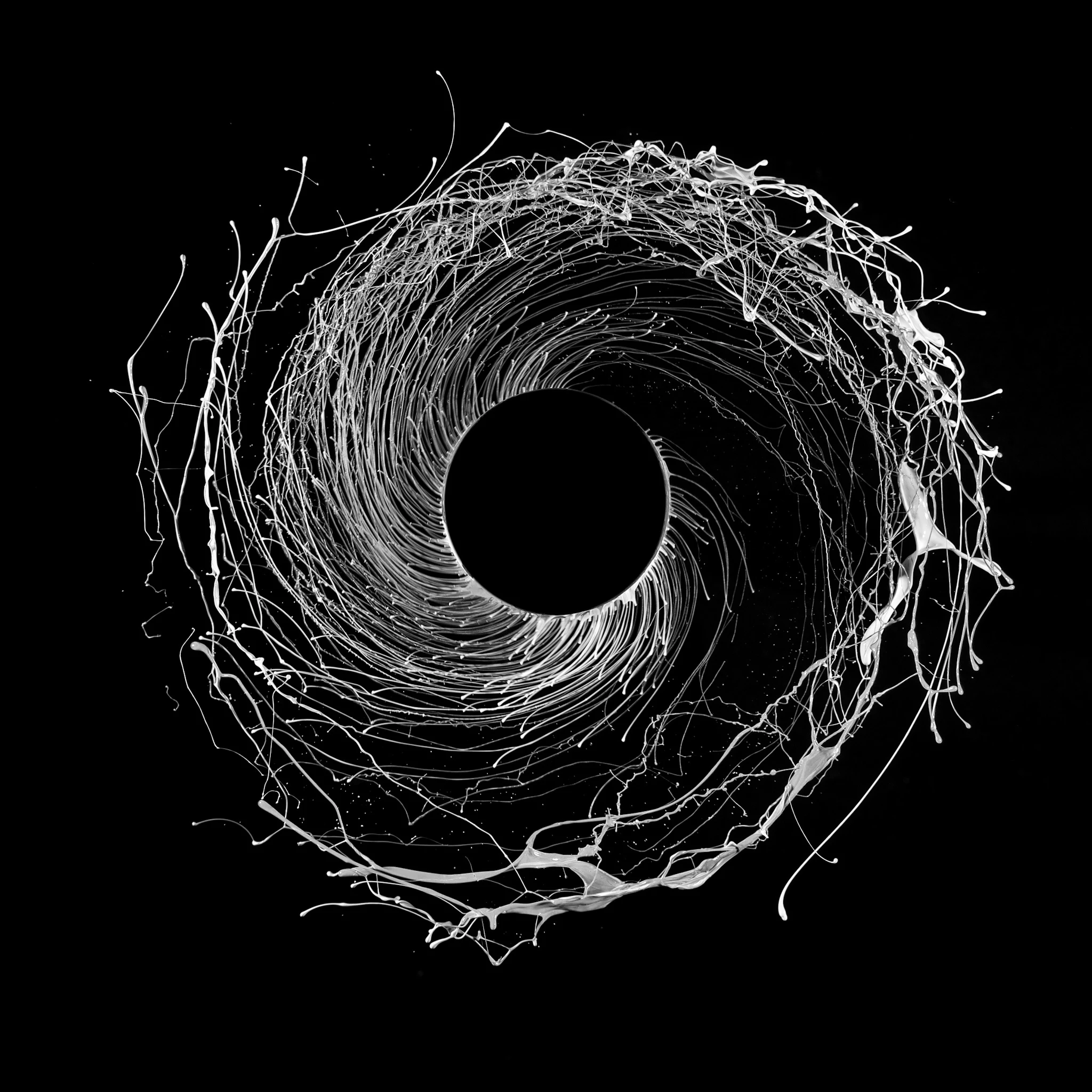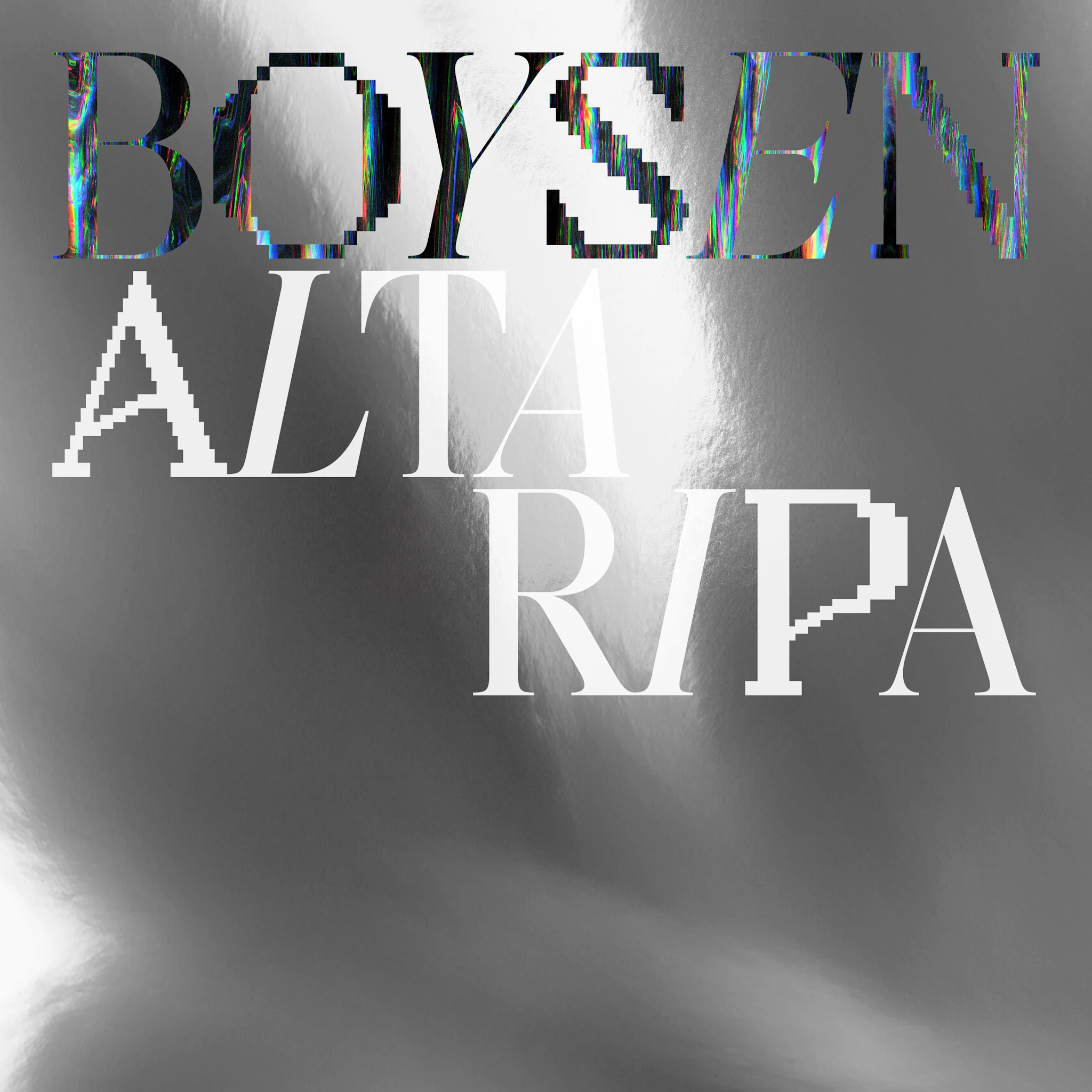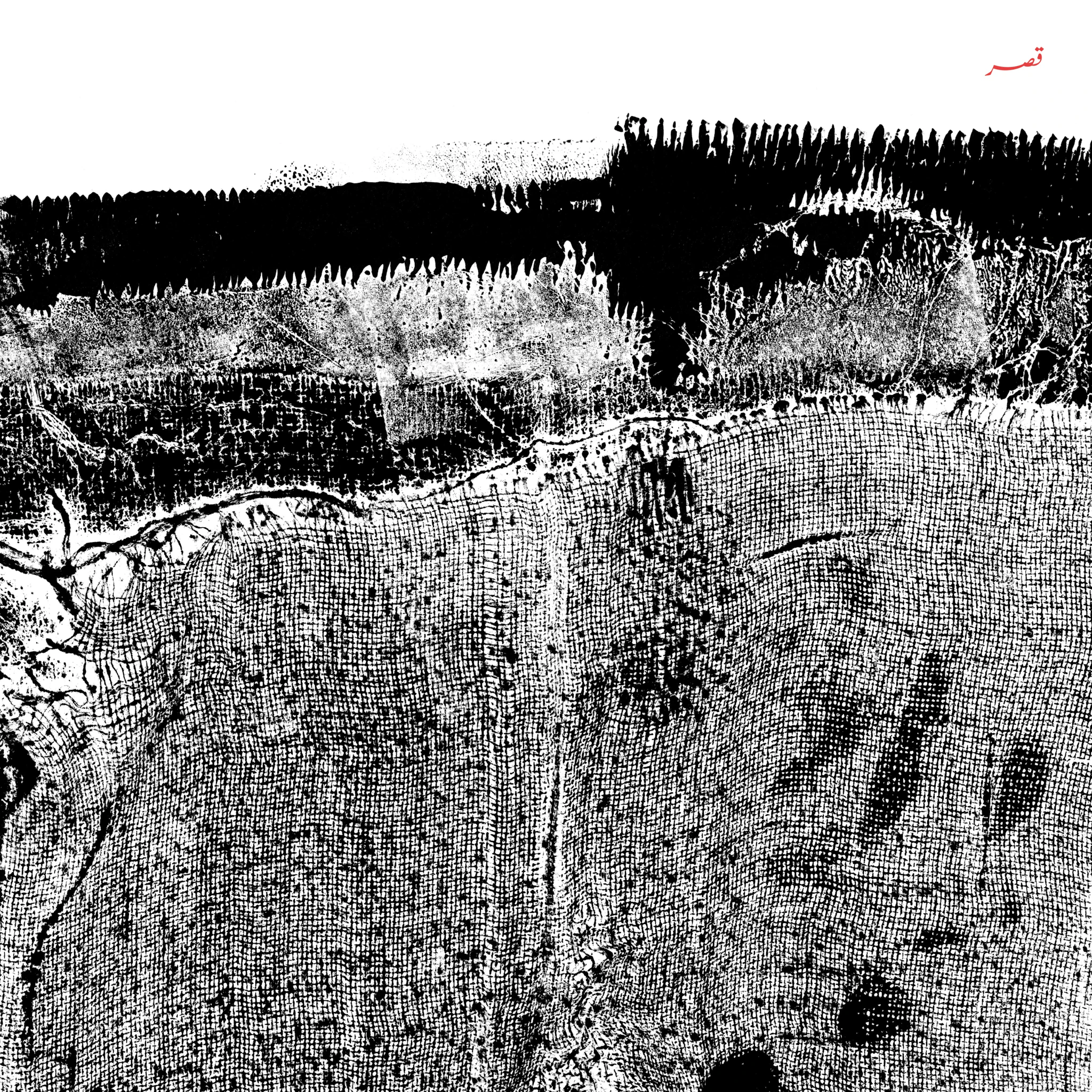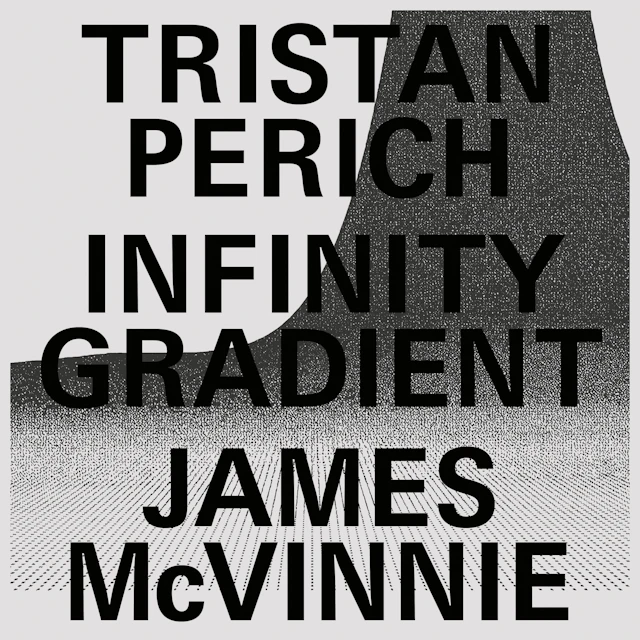
Tristan Perich & James McVinnie - Infinity Gradient
- 1Infinity Gradient: Opening
- 2Infinity Gradient: Section 1
- 3Infinity Gradient: Section 2
- 4Infinity Gradient: Section 3
- 5Infinity Gradient: Section 4
- 6Infinity Gradient: Section 5
- 7Infinity Gradient: Section 6
- 8Infinity Gradient: Section 7
ERATP178DL
•
Open edition
From Bach to Brahms, Mahler to Messiaen, any composer worth their salt has written for the pipe organ. And so when James McVinnie put the idea to Tristan Perich to write for the king of instruments, it was perhaps not a surprise that the New York contemporary-classical composer had already considered the possibilities of marrying his signature 1-bit electronic music with an instrument that has reverberated down the centuries. The resulting piece that started with a conversation between the two back in 2016 is undoubtedly Perich’s most ambitious work to date.
Infinity Gradient is an hour-long symphony in seven movements for organ and 100 speakers in 1-bit audio, recorded for this album at London’s Royal Festival Hall at Southbank Centre, where McVinnie was artist-in-residence throughout 2024. The 100 speakers are set across the stage – a recurring element in Perich’s work for over two decades, this time featuring four giant subwoofers, 24 medium-sized speakers, and 72 small speakers – against the backdrop of RFH’s imposing organ; the piece is as visually striking to look at as it is to listen to.
A remarkable work with few precedents, Infinity Gradient is a duet between two musical instruments, millennia apart in conception. Shot through with dynamism, it is a work of colour and contrasts which coalesce into a unique, transcendent whole. “As a composer, my job is to let instruments be themselves, but guide them by writing music that creates something new. The raw beauty and immense spectrum of sound that both the organ and 1-bit electronics are capable of, is really what this piece is about,” says Perich. “I like to be reminded of the physicality of the instruments themselves. In this piece, the low, gritty sounds have an inescapable visceral quality, where the music is felt as much as heard. When things get explosively brilliant, I think of the surrounding molecules of air vibrating with sound. And so this piece of music moves throughout the entire spectrum of these instruments.
The kernel of an idea for the project first came to McVinnie when he heard Vicky Chow perform Perich’s Surface Image – an earlier, hour long work for piano and 40 speakers – in Latvia in 2016. A celebrated organist who has collaborated with everyone from Philip Glass to Squarepusher, McVinnie was “bowled over by Surface Image” and immediately saw the potential for a similar work for organ, with its direct correlation to the philosophy behind Perich’s 1-bit electronics. “When you press down a key on a pipe organ, it lets air into the pipe, which creates sound. Each pipe is either in a state of making sound or being silent. There is no decay, nor any obvious change to the sound until the key is released.” The same is true of Perich’s 1-bit electronics, which use binary pulses of electricity to set a speaker cone into motion and create sound. McVinnie continues, “This shared ‘on-off’ binary element offers a kind of beautiful honesty to the work, which links with the emotional core of its musical form and narrative. Despite all of its complex technology – for me – the experience of Infinity Gradient is a supremely human one.”
Growing up, Perich’s primary instrument was the piano, though he also took a few lessons on pipe organ in elementary school and then, when he was at high school, he suddenly had access to one: “There was this amazing organ in a chapel that I could go and play at night,” he remembers. “I would be the only one in the building. I would tape down notes on the organ and just walk around the room while this awesome instrument played these long sustained tones.”
As impressive as that instrument might have been, there’s little doubt it would not be able to compete with the 7,866 pipes of the organ in the Royal Festival Hall. Designed by Ralph Downes and installed by Harrison & Harrison between 1950 and 1954, McVinnie describes it as a “kind of mid-century dreamhouse.” He adds: “Downes was not part of the church music establishment, and thus was not wedded to a status quo about how organs should sound and what their function should be. Above all, he felt the organ should be a vehicle for its solo repertoire of a golden era of composition from the 18th century, rather than as an accompanying instrument for English choral music and church liturgy. The Royal Festival Hall organ was a kind of real maverick experiment in what it would be like to go back to the organ design principles of the 17th and 18th centuries. It has a striking liveness and fire to its sound, making it an ideal partner for Perich’s 1-bit electronics.”
The long sustained notes that inspired Perich in high school now echo down the decades on Infinity Gradient, commencing drone-like at the outset of ‘Section 3’, a subtle sequence of reverberations that are then accompanied by symbiotic, scratchy electronic humming and the eventual interjection of ascendent scales. That allusion to a sense of things rising reveals itself in all its transcendent glory during ‘Section 6’ at the apex of the piece. Perich describes this moment as the original core concept of the entire project, which required the complete reprogramming of his custom electronics over several months in order to achieve this startling pitch bending glissando.
Naturally, the composer remains tight-lipped about what it all ultimately means, though his objective has largely remained the same these past 20 years or so. Perich’s modus operandi – combining the aesthetic simplicity of maths, physics and code with Steve Reich-like layers – needs to connect on some emotional level with human beings if it is to fulfill its purpose:
“My music is only successful when there's an emotional component,” he says. “And I think that emotion can come from very, very simple things, like understanding the laws of gravity, being able to comprehend why something falls, whether it’s an apple or a ball or a leaf falling from a tree, which can be a really beautiful moment in itself. And, in fact, the leaf is perhaps even more beautiful because it interacts with air on its way down. And air is something you don't see but we know exists because of our scientific understanding of the physical world. It's in this interesting kind of phenomenon that we can find beauty purely on its own.”
Composed by Tristan Perich
Organ by James McVinnie
Programming by Tristan Perich
Cover design by Bernd Kuchenbeiser
Mixed by Tristan Perich, James McVinnie, Nathaniel Reichman
Recording engineer: Andrew Groves
Mastered by Nathaniel Reichman
Executive producer: Robert Raths
Published by Erased Tapes Music Publishing Ltd.
©℗ 2025 Erased Tapes Records Ltd.
All rights reserved. All tapes erased.
Made in the EU.
LC15952 ERATP178
erasedtapes.com tristanperich.com
Infinity Gradient is an hour-long symphony in seven movements for organ and 100 speakers in 1-bit audio, recorded for this album at London’s Royal Festival Hall at Southbank Centre, where McVinnie was artist-in-residence throughout 2024. The 100 speakers are set across the stage – a recurring element in Perich’s work for over two decades, this time featuring four giant subwoofers, 24 medium-sized speakers, and 72 small speakers – against the backdrop of RFH’s imposing organ; the piece is as visually striking to look at as it is to listen to.
A remarkable work with few precedents, Infinity Gradient is a duet between two musical instruments, millennia apart in conception. Shot through with dynamism, it is a work of colour and contrasts which coalesce into a unique, transcendent whole. “As a composer, my job is to let instruments be themselves, but guide them by writing music that creates something new. The raw beauty and immense spectrum of sound that both the organ and 1-bit electronics are capable of, is really what this piece is about,” says Perich. “I like to be reminded of the physicality of the instruments themselves. In this piece, the low, gritty sounds have an inescapable visceral quality, where the music is felt as much as heard. When things get explosively brilliant, I think of the surrounding molecules of air vibrating with sound. And so this piece of music moves throughout the entire spectrum of these instruments.
The kernel of an idea for the project first came to McVinnie when he heard Vicky Chow perform Perich’s Surface Image – an earlier, hour long work for piano and 40 speakers – in Latvia in 2016. A celebrated organist who has collaborated with everyone from Philip Glass to Squarepusher, McVinnie was “bowled over by Surface Image” and immediately saw the potential for a similar work for organ, with its direct correlation to the philosophy behind Perich’s 1-bit electronics. “When you press down a key on a pipe organ, it lets air into the pipe, which creates sound. Each pipe is either in a state of making sound or being silent. There is no decay, nor any obvious change to the sound until the key is released.” The same is true of Perich’s 1-bit electronics, which use binary pulses of electricity to set a speaker cone into motion and create sound. McVinnie continues, “This shared ‘on-off’ binary element offers a kind of beautiful honesty to the work, which links with the emotional core of its musical form and narrative. Despite all of its complex technology – for me – the experience of Infinity Gradient is a supremely human one.”
Growing up, Perich’s primary instrument was the piano, though he also took a few lessons on pipe organ in elementary school and then, when he was at high school, he suddenly had access to one: “There was this amazing organ in a chapel that I could go and play at night,” he remembers. “I would be the only one in the building. I would tape down notes on the organ and just walk around the room while this awesome instrument played these long sustained tones.”
As impressive as that instrument might have been, there’s little doubt it would not be able to compete with the 7,866 pipes of the organ in the Royal Festival Hall. Designed by Ralph Downes and installed by Harrison & Harrison between 1950 and 1954, McVinnie describes it as a “kind of mid-century dreamhouse.” He adds: “Downes was not part of the church music establishment, and thus was not wedded to a status quo about how organs should sound and what their function should be. Above all, he felt the organ should be a vehicle for its solo repertoire of a golden era of composition from the 18th century, rather than as an accompanying instrument for English choral music and church liturgy. The Royal Festival Hall organ was a kind of real maverick experiment in what it would be like to go back to the organ design principles of the 17th and 18th centuries. It has a striking liveness and fire to its sound, making it an ideal partner for Perich’s 1-bit electronics.”
The long sustained notes that inspired Perich in high school now echo down the decades on Infinity Gradient, commencing drone-like at the outset of ‘Section 3’, a subtle sequence of reverberations that are then accompanied by symbiotic, scratchy electronic humming and the eventual interjection of ascendent scales. That allusion to a sense of things rising reveals itself in all its transcendent glory during ‘Section 6’ at the apex of the piece. Perich describes this moment as the original core concept of the entire project, which required the complete reprogramming of his custom electronics over several months in order to achieve this startling pitch bending glissando.
Naturally, the composer remains tight-lipped about what it all ultimately means, though his objective has largely remained the same these past 20 years or so. Perich’s modus operandi – combining the aesthetic simplicity of maths, physics and code with Steve Reich-like layers – needs to connect on some emotional level with human beings if it is to fulfill its purpose:
“My music is only successful when there's an emotional component,” he says. “And I think that emotion can come from very, very simple things, like understanding the laws of gravity, being able to comprehend why something falls, whether it’s an apple or a ball or a leaf falling from a tree, which can be a really beautiful moment in itself. And, in fact, the leaf is perhaps even more beautiful because it interacts with air on its way down. And air is something you don't see but we know exists because of our scientific understanding of the physical world. It's in this interesting kind of phenomenon that we can find beauty purely on its own.”
Composed by Tristan Perich
Organ by James McVinnie
Programming by Tristan Perich
Cover design by Bernd Kuchenbeiser
Mixed by Tristan Perich, James McVinnie, Nathaniel Reichman
Recording engineer: Andrew Groves
Mastered by Nathaniel Reichman
Executive producer: Robert Raths
Published by Erased Tapes Music Publishing Ltd.
©℗ 2025 Erased Tapes Records Ltd.
All rights reserved. All tapes erased.
Made in the EU.
LC15952 ERATP178
erasedtapes.com tristanperich.com
